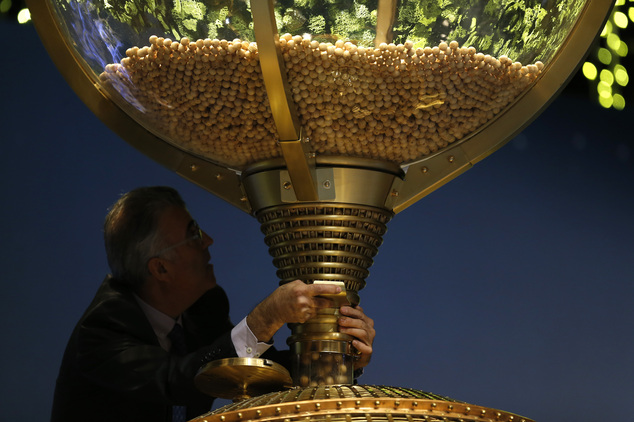-
Tips for becoming a good boxer - November 6, 2020
-
7 expert tips for making your hens night a memorable one - November 6, 2020
-
5 reasons to host your Christmas party on a cruise boat - November 6, 2020
-
What to do when you’re charged with a crime - November 6, 2020
-
Should you get one or multiple dogs? Here’s all you need to know - November 3, 2020
-
A Guide: How to Build Your Very Own Magic Mirror - February 14, 2019
-
Our Top Inspirational Baseball Stars - November 24, 2018
-
Five Tech Tools That Will Help You Turn Your Blog into a Business - November 24, 2018
-
How to Indulge on Vacation without Expanding Your Waist - November 9, 2018
-
5 Strategies for Businesses to Appeal to Today’s Increasingly Mobile-Crazed Customers - November 9, 2018
The $2 billion (yes, that’s billion) ‘Fat One’ lottery
Spaniards line up to buy tickets for El Gordo each year but true to the Christmas spirit of sharing, no one person can win a jackpot of $2.4 billion.
Advertisement
The draw is always held in December 22 and televisions and radios are tuned in to the singing voices of pupils from San Ildefonso school in Madrid, where children are picked to call out the numbers of the ticket and the prize as the balls roll out of the massive lottery tombolas.
This year, the Golden Witch office has sold about $54 million worth of tickets for two lottery draws – one on Tuesday and a smaller one on January 6, the Feast of the Epiphany – which most Spaniards consider an integral part of their end-of-year festivities.
Feeling jealous? Well, you shouldn’t because you can play the next one (which takes place in a year’s time), even if you’re not from Spain.
The lottery has always been immensely popular but has taken on special importance in recent years as Spain struggled through a real estate bubble and the European debt crisis. It’s operated out of Spain, but anyone can buy a ticket online.
Spain established its national lottery as a charity in 1763, during the reign of King Carlos III, but its objective gradually shifted toward filling state coffers. It’s estimated that three quarters of the Spanish population but at least one ticket every year.
“Nearly everyone has a ticket, or a share in one”, Laujar de Andarax mayor Almudena Morales told Spain’s Europa Press news agency.
“They went to workers who need it a lot”, she said “And to top it off, they were distributed by the kids”.
The lottery, which dates back to 1812, is an institution in the country with the odds of winning standing at one in six, according to the Spanish branch of The Local. It also offers several hundred ways to win, giving ticket buyers that much more to hang on to when they dream of winning to fat, top prize.
Advertisement
“I feel a great joy, mainly because it’s so well spread out, especially among workers”, Jose Martin said.





























